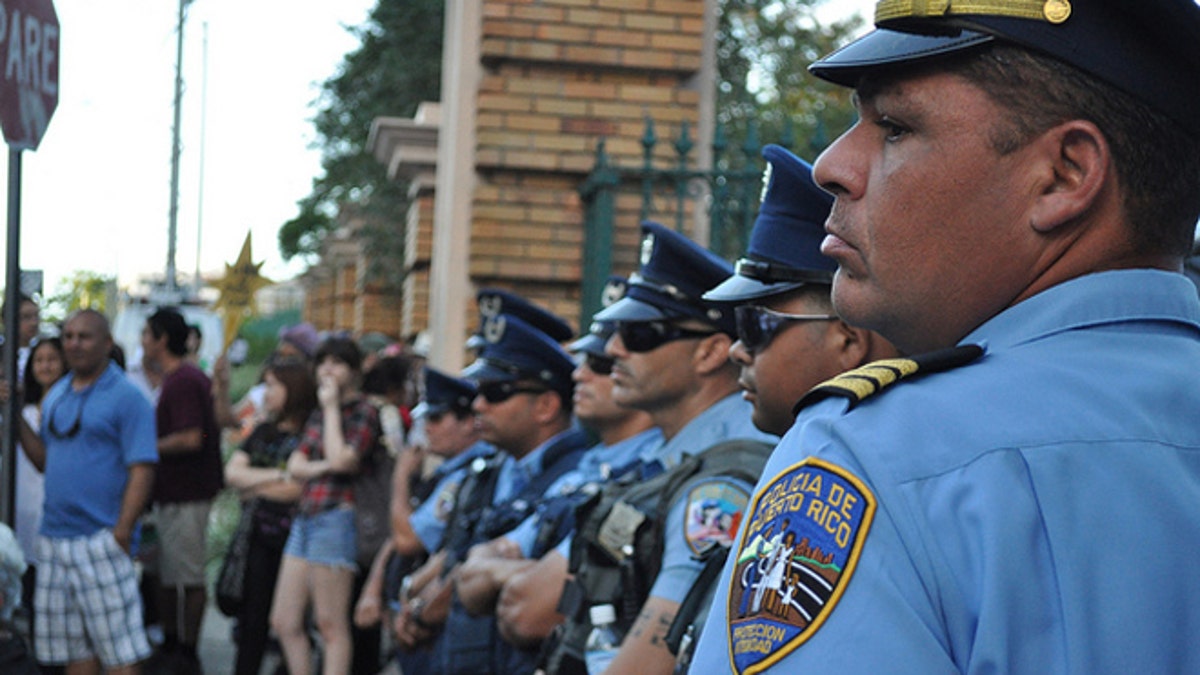
(davsot @ Flickr)
SAN JUAN, Puerto Rico – Puerto Rico's public pension system is in debt $37.3 billion and could send the territory over the fiscal edge in what economists and financial analysts say is a ticking time bomb.
It's not that we're bad off. We're broke...The concern is that there will come a day when the government cannot respond and everyone will be left out on the street.
Puerto Rico's problems stem from decades of neglect as politicians facing budget deficits were unwilling to set aside money for the growing ranks of retired police, firefighters, teachers and office workers. Now many analysts and even some government officials concede it is the most critical issue facing the administration of newly elected Gov. Alejandro Garcia Padilla.
"This is the most important financial issue right now," said Gustavo Velez, a prominent Puerto Rican economist. "They have to find a solution. They have to create a plan in the next three months."
Some experts are calling for cutting benefits to help Puerto Rico confront the the public pension system with a $37.3 billion unfunded liability. The unfunded liability, which is spread across three public pension systems, is almost four times the annual government budget for the island of nearly 4 million people. Only a few much larger U.S. states, such as California and Illinois, face bigger unfunded liabilities.
Velez and others suggest that Puerto Rico should immediately reduce benefits, raise the retirement age and demand increased contributions from current employees, ideas that don't sit well with people like Marti.
"Imagine, I'm going to be left without a big chunk of money that I contributed," she said.
Office clerk Lillian Marti hopes to retire one day with a decent pension. Now, like many other employees of Puerto Rico's government, she's beginning to fear she might not get that chance.
"Of course, I'm worried," said the 61-year-old, who has worked for the government for 20 years.
"It's not that we're bad off. We're broke," said Miguel Morales, a consultant to a permanent committee charged with regulating the pension system. "The concern is that there will come a day when the government cannot respond and everyone will be left out on the street."
Nearly all of the problem centers on two pension systems -- one for teachers and one for other government workers -- that stopped accepting new beneficiaries in January 2000. They serve more than 273,000 active and retired government workers.
Those initially allowed workers to retire at age 55 with 25 years of service or at age 58 with 10 years of service. In 1990, legislators made significant changes, reducing benefits and increasing the retirement age from 55 to 65 years for newly hired workers.
As liabilities mounted, legislators scrapped that system 13 years ago, creating a new system that is more like a 401(k)-type plan in which workers must make their own contributions.
The newer defined-contribution plan is considered financially stable. But the older plan will have used up its assets "within several years," Karen Krop, a senior director of public finance at Fitch Ratings.
If the system does collapse, the island's general fund is supposed to honor those collections. "But the general fund doesn't have that money," Velez said.
Nearly three years ago, former Gov. Fortuno established a committee charged with solving the pension fund's problems, noting that the overall system was paying $679 million more a year than what it received in contributions.
"Absent any corrective measures, the systems could be left without funds in or before 10 years," he stated in a March 2010 executive order.
That study led lawmakers to increase employee contributions to the system and they transferred $162 million into the retirement system so that officials could buy a capital bond expected to generate $1.5 billion in 40 years. But it wasn't enough to solve the problem.
Puerto Rico's public pension problems also have damaged the island's bond ratings, which remain significantly lower than any U.S. state, raising the island's cost of borrowing.
In December, Moody's lowered Puerto Rico's credit rating, stating in part that it doesn't have a clear idea as to how and when the government will solve the retirement systems' problems. It warned of an additional credit rating downgrade if no reforms are undertaken.
Complicating the territory's financial situation is its $69 billion public debt.
"Puerto Rico debt levels are well, well in excess of what we see in other states," Krop of Fitch Ratings said.
Most states have an average 3 percent of tax-supported debt as a percentage of personal income. Nine percent is considered high. Puerto Rico is at 80 percent, Krop said. The per capita debt is more than $12,000 per person, excluding pension, she added.
Given those numbers, Marti said she doesn't believe she'll have enough money to retire. She went back to work in part to collect more Social Security, but even then, she said the federal fiscal situation doesn't give her much hope.
"Things are not easy," she said. "You don't know what's going to happen with Social Security either."
The Associated Press contributed to this report.
Follow us on twitter.com/foxnewslatino
Like us at facebook.com/foxnewslatino
